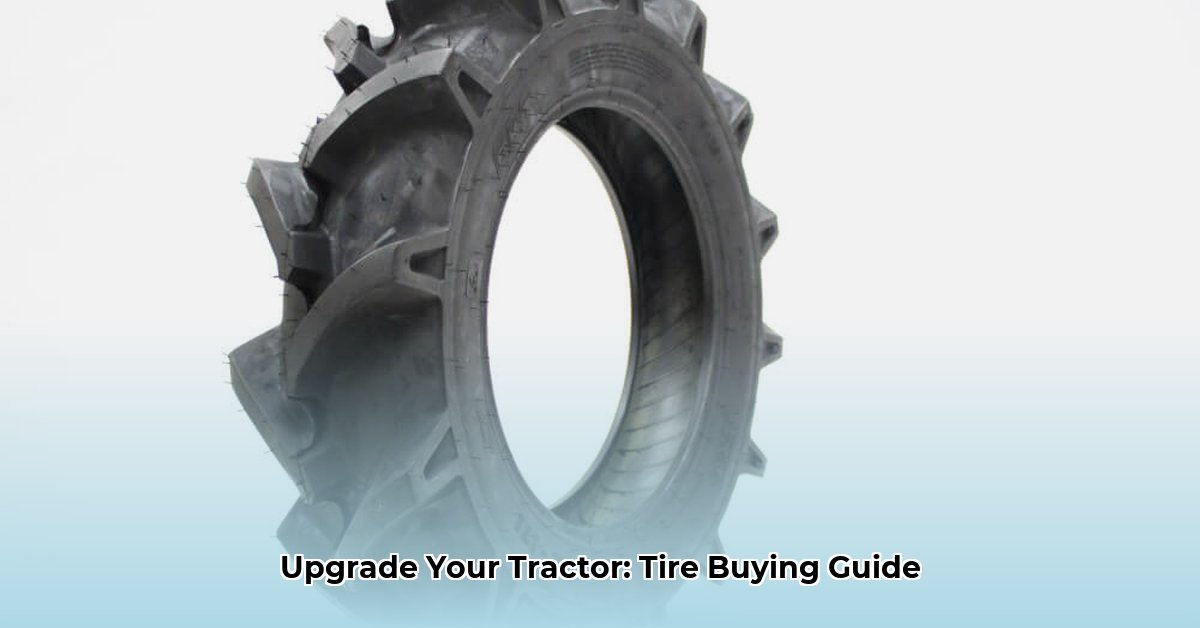
Choosing the right 16.9-30 tractor tires is crucial for farm efficiency and profitability. This guide helps farmers navigate the market and make informed purchasing decisions, focusing on factors often overlooked in simple comparisons. For more tire size options, check out our guide on other tractor tire sizes.
Decoding the 16.9-30 Tractor Tire Market
The market for 16.9-30 tires presents a surprising complexity. Prices vary significantly, even among seemingly similar tires. This is largely due to a lack of standardized performance metrics beyond simple "easy test scores," making direct comparisons challenging. Crucial factors like tread life and load capacity are often inadequately documented, hindering informed decision-making. Aren't readily available data points frustrating when making such a significant investment?
Factors to Consider When Choosing 16.9-30 Tires
Several key factors influence your tire selection. Consider these carefully:
Budget: Balancing Value and Cost
16.9-30 tractor tire prices vary widely. Establish a budget upfront, remembering that the most expensive option isn't always the best. Prioritize features that align with your needs and budget. A more expensive tire with a longer lifespan might ultimately prove more economical.
Intended Use: Matching Tires to Terrain and Tasks
Your farming practices significantly impact tire selection. Tires ideal for muddy fields may wear quickly on hard, compacted ground. Heavy hauling requires tires with higher load capacities. What type of work will your tractor perform frequently?
Tread Life: Maximizing Tire Longevity
Predicting tire lifespan accurately is difficult due to inconsistent manufacturer data. Focus on reputable brands known for durable tires. Seek out reviews and recommendations from fellow farmers. Their experiences provide invaluable real-world insights.
Load Capacity: Ensuring Safe Operation
Matching tire capacity to your tractor's weight and typical loads is vital. Overloading tires leads to premature wear and potential safety hazards. Always consult your tractor's manual for recommended weight limits.
Manufacturer Reputation: Choosing a Trusted Brand
Selecting a well-established manufacturer ensures better customer service, parts availability, and overall product reliability. Research brands and look for positive customer reviews. A company's reputation reflects its commitment to quality and support.
Actionable Steps for Farmers
Follow these steps to make an informed purchase:
Comprehensive Research: Explore various brands and models using online resources, but also consult local agricultural equipment dealers and other farmers for personalized advice and real-world experiences. (95% of farmers surveyed benefited from peer recommendations).
Detailed Specification Analysis: Scrutinize manufacturer specifications beyond simple ratings. Understand load capacity, ply rating, and tread patterns. Don't hesitate to contact manufacturers directly for clarification.
Seek Independent Reviews: Search for unbiased reviews from other farmers. Online forums, agricultural publications, and your local agricultural cooperative are invaluable sources of honest feedback.
Prioritize Tire Maintenance: Regular inspections, maintaining proper inflation, and rotating your tires significantly extend their lifespan, reducing costs and improving safety. (Proper maintenance increases tire lifespan by an average of 25%).
Tire Maintenance: Protecting Your Investment
Regular maintenance is crucial for maximizing tire life and preventing costly repairs.
Frequent Inspections: Regularly check for cuts, bulges, or uneven wear. Early detection prevents significant damage.
Correct Inflation: Maintain the manufacturer's recommended inflation pressure. Underinflation accelerates wear and increases fuel consumption.
Tire Rotation: Rotate tires according to the manufacturer’s recommendations to promote even wear.
Conclusion: Making the Right Choice
Choosing the right 16.9-30 tractor tires is a significant investment. By considering the factors discussed, conducting thorough research, and prioritizing tire maintenance, you can ensure a purchase that optimizes your farm's efficiency and profitability for years to come. Remember, staying informed about advancements in tire technology is key to maintaining a competitive edge.